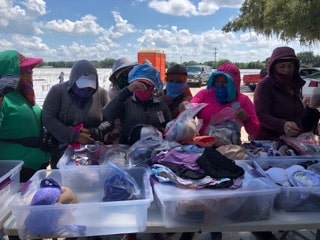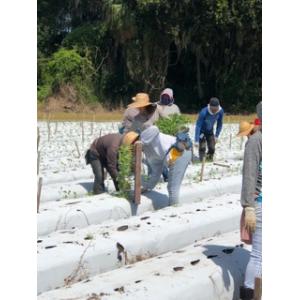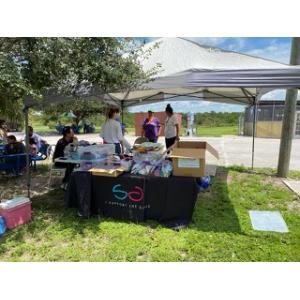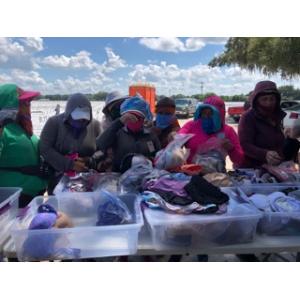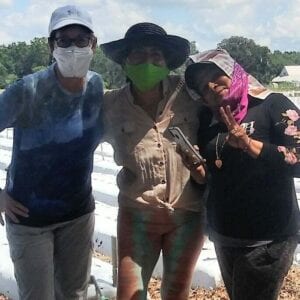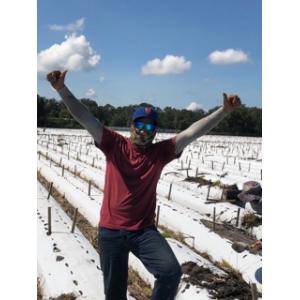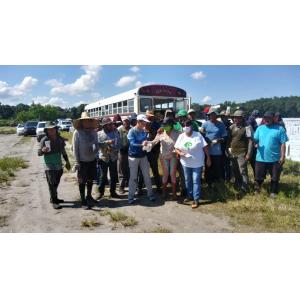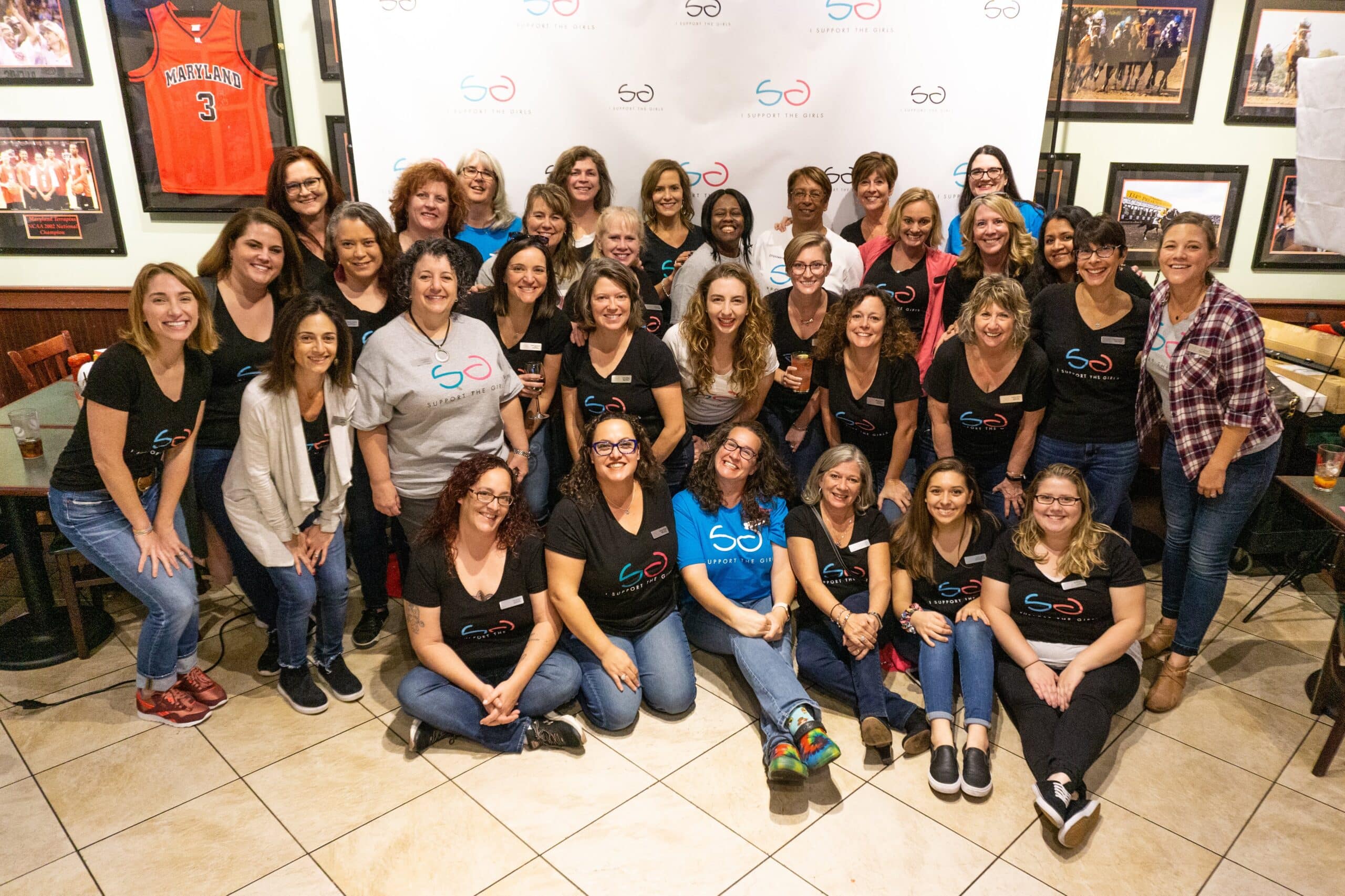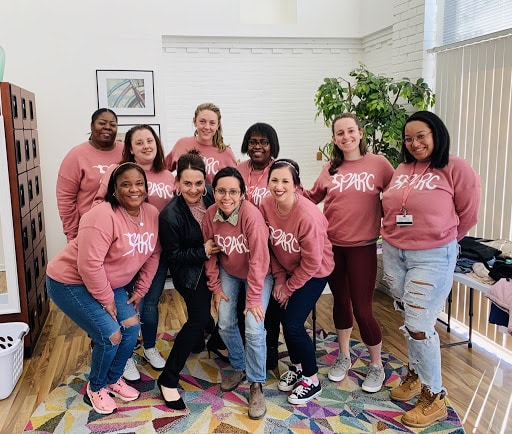By: Nancy Blount, Affiliate Director of I Support the Girls-Tampa Bay, Florida
I never thought the result of one email would have the impact on me like the one I sent to Colectivo ARBOL (“Collective Tree” in English) in early September did. Founded by Isaret Jeffers-Chavez, they provide outreach to migrant workers in Florida by providing them with food, helping them with forms, testing them for COVID-19, etc.
Isaret informed me that women they work with were desperate for bras and menstrual hygiene products and anything else I could provide. Two weeks later I was in the middle of a jalapeno field in Lake Placed, FL. I was not prepared for what I was to learn and the emotions that would follow.
Isaret’s Story
Isa was once an undocumented farm worker who crossed the Arizona desert to pursue a better life in America. She knows the dangers women face on their journey. Hunger, thirst, bandits, hiding in trailers and fear of sexual predators.
In Lake Placid, she would be helping migrant workers with their paperwork. Only 25-30 ladies attended as they had a day off from picking lettuce and watermelon. I was thanked for the few bras I handed out with homemade fried chicken, beans, and tortillas served in the back of a van.
The next event was a few days later in Plant City, just outside of Tampa. There was no address for the farm, just “by the white school bus and trucks on the side of the field.” I watched the women as they dropped tiny jalapenos in holes for another group who will pick them in a few weeks.
I set up my table with about 150 bras neatly arranged in bins by size. It was lunch time and as I watched the workers leave the field, I realized that I had not brought enough bras for them all. I was prepared for 25 or 30 women, not over 100. All of the women were dressed in multiple layers of sweatshirts, jeans and cloth face coverings to protect them from the sun. Some had leaves around the brims of their hats to protect exposed areas of their faces. Sunscreen is a luxury. The temperatures in the fields can be 5-10 degrees hotter than outside them. Calloused and muscular hands were grateful for the bras they were able to get. There were daughters, granddaughters, and sisters, who needed them, too. Many of the bras would be sent back to Mexico.
Sizes didn’t matter and the brighter and lacier the better. In fifteen minutes, I handed out 150 bras and 100 period packs. As a show of gratitude for my small gifts, I was always offered food. This time it was tacos and tortillas.
Three days before our next planned event I got a panicked call from Isa. It had been moved up one hour and she needed someone to drive a 20 ft. U–Haul truck to Plant City. My trooper of a husband took the day off to drive. There would be no neatly arranged bins this time as I tossed bras of all sizes and types into garbage bags. After loading pallets of peanut butter, fruit, beans, vegetables, bread and rice into the truck we headed to the field. Volunteers from Colectivo ARBOL were waiting for us to arrive and we all managed to set up tables with food ready for the families to pick up.
“The Bra Lady”
Word spread fast that the “the bra lady” would be there. 170 women got bras, period packs and enough food to feed their families (approximately 850 individuals) for several days. It was a 12-hour day for us. We were tired, drenched in sweat and ready to go home.
But I couldn’t quit thinking of the women I had been interacting with. Women who work tirelessly, often in intense heat. They cultivate, harvest, and hand-pick the lettuce, tomatoes, strawberries, watermelon and fruit that we find on our plates and in our restaurants, not questioning how it got there.
Approximately 25% of farmworkers in the U.S. today are female with Florida and California employing the most. About 60% are residents of Florida and live and work here full time, others are here for about six months and then return to their country.
Beyond poverty, many have spouses who have been deported and they are left to care for several children alone. This has to be done on their very low salary as most are not eligible for government assistance, cannot claim unemployment and do not qualify for stimulus checks.
They must also deal with racism and bullying from the general public. Some are silent victims of domestic violence, afraid to speak out. It is rarely reported because of fear of deportation or job loss, shame, embarrassment and language barriers.
Most of the women in the fields get the least expensive menstrual hygiene products they can find to save on costs. It’s very difficult and uncomfortable to change hygiene products in the tiny restrooms, and sometimes they cannot get the privacy they need.
The two or three bras they own are usually second hand and not in good condition. Wireless ones are preferred because they are working in open fields in intense heat and sweat a lot. They need to be comfortable since they often carry baskets. The fancier the better. They want to feel feminine and beautiful when they are not working.
Heroes
Because of close living and working conditions, lack of medical care and language barriers, this vulnerable group is at high risk for contracting COVID-19. They can’t afford to take time off to quarantine.
Farmworkers have been deemed essential. They have continued to work through the pandemic to bring us food. They are vulnerable to sexual assault, harassment and domestic violence. They are isolated. They are crucial. They are strong. They are brave.
They are heroes.
